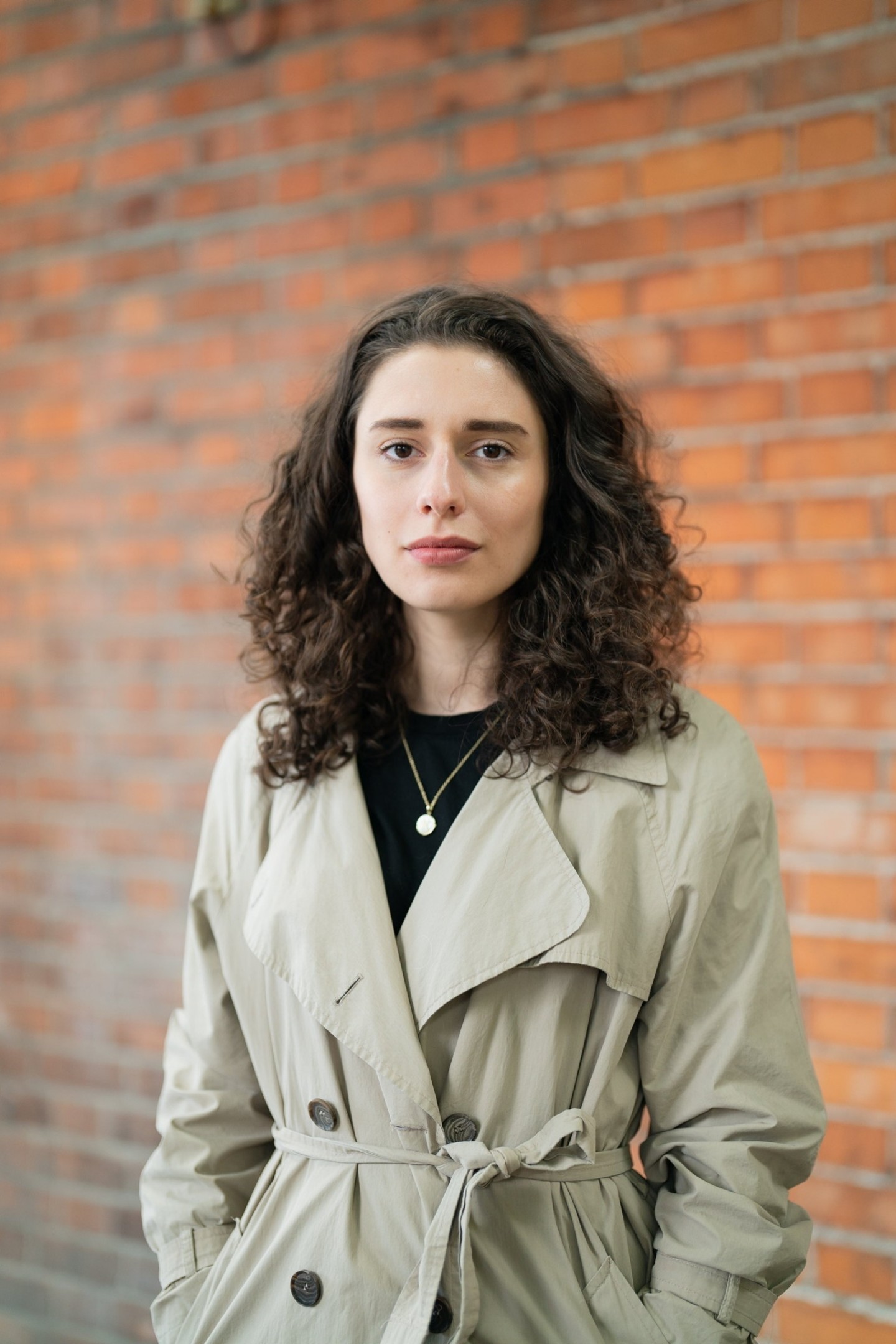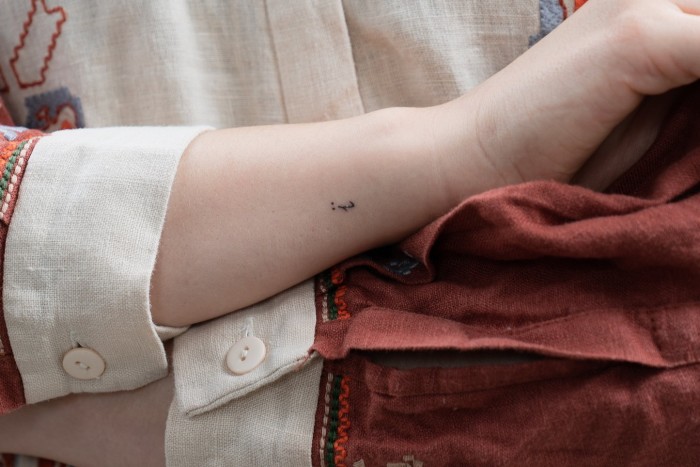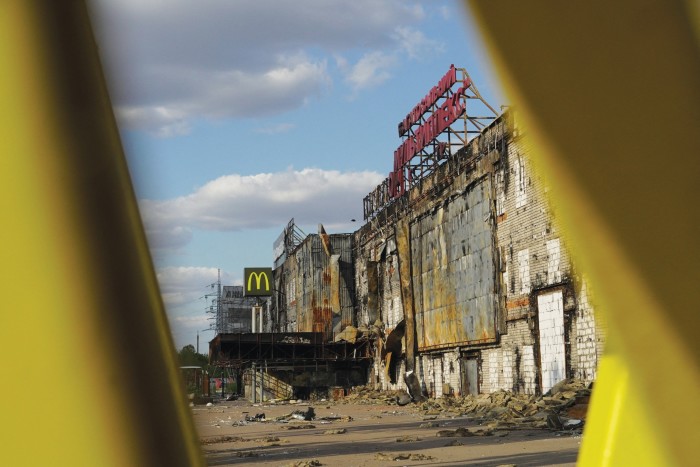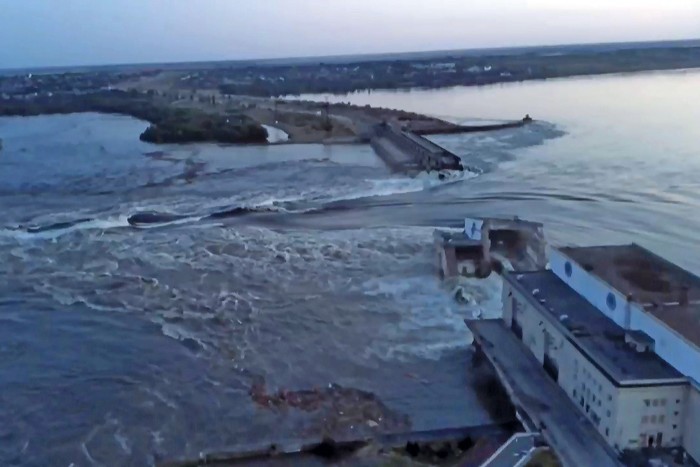Business graduate uses lessons to help victims of Ukraine war

Roula Khalaf, Editor of the FT, selects her favourite stories in this weekly newsletter.
On February 24 2022, Kate Zhuzha was due to fly from Dublin, where she lives and works, home to Ukraine. Zhuzha’s brother had already travelled from Kherson to Kyiv to meet her, while her parents and grandmother stayed in the family home town of Nova Kakhovka in the south.
The trip never happened. Russia invaded and early that morning its flags were flying over the hydroelectric power station in Nova Kakhovka. “Everyone was in shock at what was happening,” she says. “For us, it was like, ‘They already have our home.’ And that was heartbreaking.”
Zhuzha, 27, desperately wanted to help those trapped by the invasion; her international outlook and the skills she learnt during her management studies were soon to prove invaluable in unexpected ways.
From an early age, she had pushed to experience life beyond Ukraine’s borders. As a youngster she was involved with the US Peace Corps, whose volunteers were active in Ukraine. Aged 15, she was selected to study for a year in a US high school as part of a cultural exchange.
“After that, I was really determined to study abroad,” she says. “I wanted to continue my studies in English. I was very interested in business. I wanted to work for an international company. Going for a year really broadened my horizons of what I am able to do.”
After studying her bachelors at Poznań University of Economics and Business in Poland, Zhuzha embarked upon a Cems Master in International Management, studying at Prague University of Economics and Business and Nova School of Business and Economics in Portugal.

In 2019, she moved to Dublin to work for Facebook (now Meta) in operations, focused on risk prevention among online communities. When Russia invaded Ukraine, Zhuzha brought all her international experience and management studies to bear in helping her own community. “It wasn’t even a decision. There was nothing else to do,” she says.
Her first reaction was “to tell the world”, so she posted social media updates based on information from family and friends. Then she noticed people who needed help — such as Maria in Nova Kakhovka, who was cooking food and taking it to people in bomb shelters. Zhuzha raised money and sent it to Maria to buy produce.
“It was very unplanned. It’s something you just do because you see there’s need,” she says. Over the next few weeks, small projects such as these cropped up across the country and she fundraised and sent money to contacts on the ground who would buy supplies and smuggle them to those in need.
She focused her efforts on the occupied Kherson region. Although the international community was rallying to help Ukraine, she knew none of it would reach her home region “because from day one it was cut off, it was occupied”, she says. “No humanitarian convoys were allowed.”

Since then, Zhuzha’s network of contacts has worked under the radar to assist people with everything from accessing medication and generators to helping a family flee to Germany. She soon came to realise that to scale up, she needed a brand, and to “clearly articulate who we are and what we do”. With her brother, Mykhailo, she co-founded an NGO — Union of Help to Kherson. Her MiM studies have helped significantly with her NGO. “I think threads of various things that I studied are all adding up in this work,” she says.
Part of that is mindset; the masters helped her to move fast and not be afraid, she says. She had to quickly write presentations about the Union of Help to Kherson, make decisions on its mission and vision and communicate these to international organisations. “So it had a lot of various aspects of what we learnt in management,” she says.
On business projects, for example, she had learnt about having a clear value proposition. “I reapplied that logic to our NGO,” she says. “‘What is the unique thing that we do that will allow people to donate to us and trust us?’ For me, that was: we are a very local, grassroots-based NGO. We have trusted contacts on the ground, and we are engaging the international community to help the occupied land.”
Classes on social impact and social impact investment helped fundraising efforts. “In grant writing, you have to explain about the impact of your work. How do you quantify the impact of your social work? What populations are you reaching? And that is exactly what I was working on and studying when I was taking those classes.”
But the most valuable thing Zhuzha took from the course was the MiM network. Professionally, such networks can provide a fast track into industries, countries and companies; she says it was eye-opening how hers rallied to help Ukraine — helping raise awareness and funds. She adds that it was “humbling” how “the Cems network really took the war and me and all the things that were happening in Ukraine with open arms . . . and helped to lift [us] up”.
In June, Union of Help to Kherson helped in the aftermath of the destruction of the dam near her home town, Nova Kakhovka, which caused widespread flooding. The NGO initially helped to co-ordinate rescue efforts, later sourcing water pumps to help people clear their homes.
For all the opportunities the MiM has afforded Zhuzha — she found her job at Meta through the careers forum — she advises students not to worry too much about grades or getting the perfect internship. Her advice is to focus more on who they are as an individual, what matters to them, what sparks joy and what is fulfilling.

“Focus more on yourself, because the world will keep changing faster and faster,” she says. “If we aim at the external world, it will be very hard to find the right place to fit in. But if you know about yourself and what you like, and you can find those pockets or you can plug in, you can make that impact happen.”
This is advice that might one day bring Zhuzha back home. For the moment, her greatest satisfaction comes from her work helping Ukrainian people and communities. “But again, with everything happening back home . . . It’s hard to think where we’ll be. In a very dream world, I’d like to come back to my home town and help bring it back to life. I don’t know if that will be possible.”
CV
2013-2016
Bachelor of Science in International Business and Economics, Poznań University of Economics and Business2017-2019
Cems Master in International Management, Prague University of Economics and Business and Nova School of Business and Economics in Portugal2013-2019
Internships and professional roles including at McKinsey, BNP Paribas and Henkel2019-present
Meta, with roles in global risk operations, and now a programme manager2022-present
Co-founder and fundraising lead at the Union of Help to Kherson NGO

Comments